When Chinese photographer Yushi Li moved to the UK in the mid-2010s to study, she signed up for Tinder to meet some new people. Dating had been different for her back in China – she hadn’t really used apps there – and she found the platform curious and enthralling. “I remember thinking how strange it was to see people ‘liking’ one another and promoting themselves almost entirely through pictures,” she recalls.
In 2016, she began an MA in photography at the Royal College of Art, and had started collecting erotic images of women with food she found on the internet and in books on art history. Unsurprisingly, there are thousands of those. Looking through these pictures, and continuing to swipe half-heartedly through dating apps, an idea came to her to blend the two together. For millennia, the male gaze has shaped artistic production, with women and their bodies objectified endlessly in paintings and sculptures, photographs and films. What Li wanted to do in response is flip the gaze, and subject men to it instead. “If that’s the status quo, I thought, then why don’t I use Tinder to ‘hunt’ for men and make some ‘delicious’ images for myself?” she says, with a wry smile. Her photo project My Tinder Boys is the playful and provocative result.
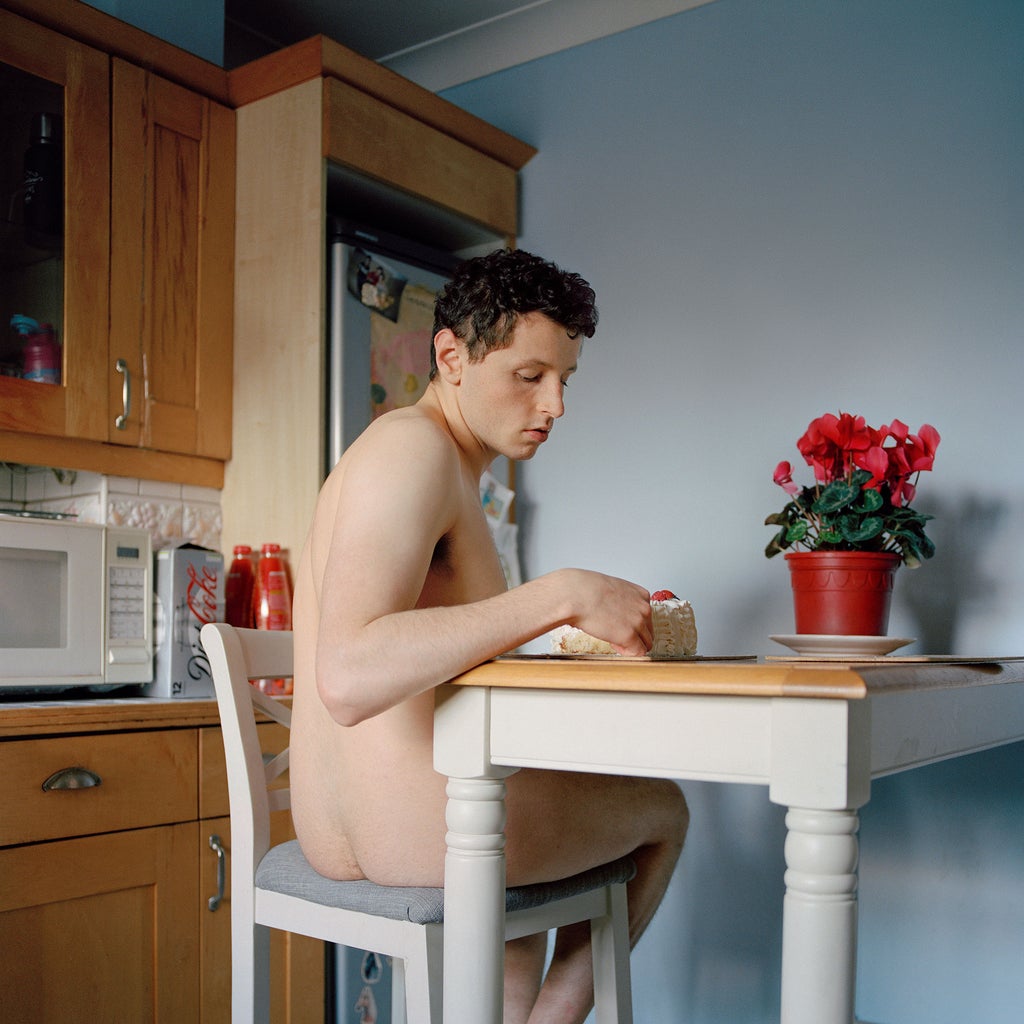
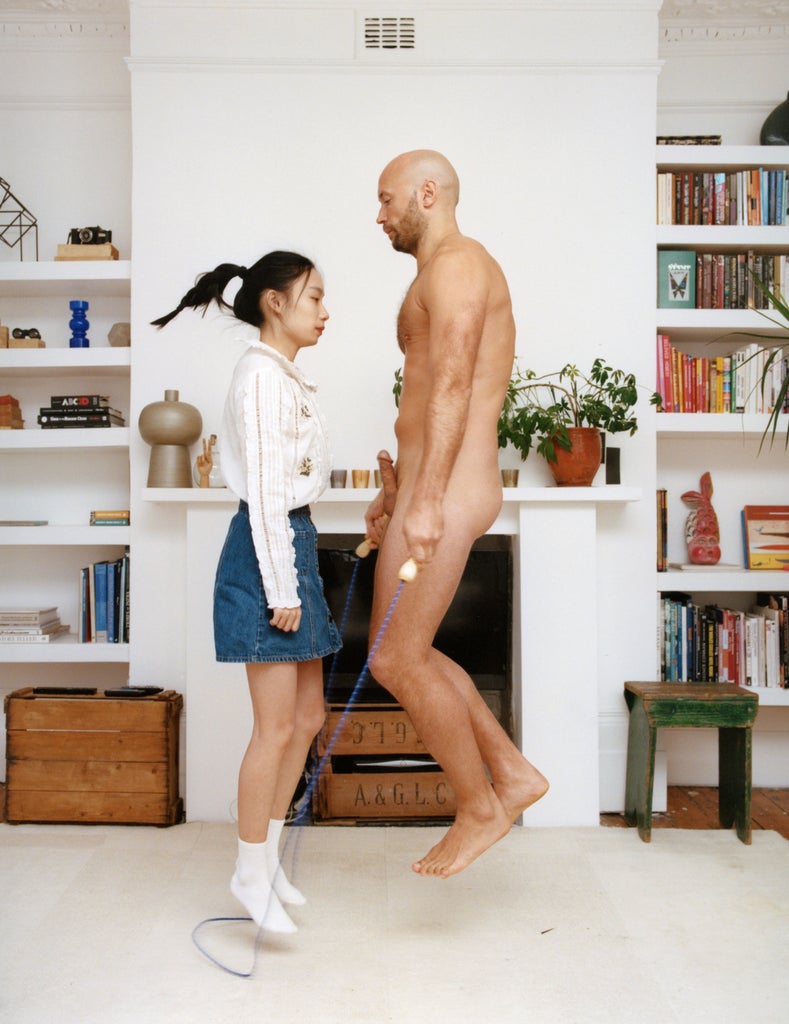
Li spent hours swiping through Tinder and looking for people to partake in this portrait project, and in the end she made something close to 1300 matches. Of those men, she messaged around 300 of them asking if they’d like to be involved. “Most of the people I contacted just ignored me while some of them thought it was a scam,” she says, “and some of them thought it was my way of flirting.” She remembers getting messages from people saying they would do it, but only if she agreed to sleep with them afterwards. If any parts of her process really highlighted the transactional nature that some people approach online dating with, then those messages were certainly it. As if to further confirm this notion, Li adds that she hasn’t kept in touch with many of her models since their photoshoots. “I’m not a very sociable person anyway, and my goal was to present these men as readily exchangeable or disposable – how a lot of things are in the Internet age.”
In the end, she photographed 15 men, and as a nod towards the sexist food photography she’d been researching, she asked her sitters to pose nude in their kitchens. This is also a stereotypically feminine space too, she says, and so it felt right to base the project there. “Normally, I would meet each person in a public place first to make sure that they seemed like nice people, and then I would go to photograph them in their home,” she says. The resulting pictures are beautifully shot in natural light, depicting her matches naked and washing fruit at the sink, eating strawberries and spooning watermelon flesh from its rind. They’re amusing in some ways, but strangely poignant too – the men are vulnerable here, bearing all for Li’s camera.
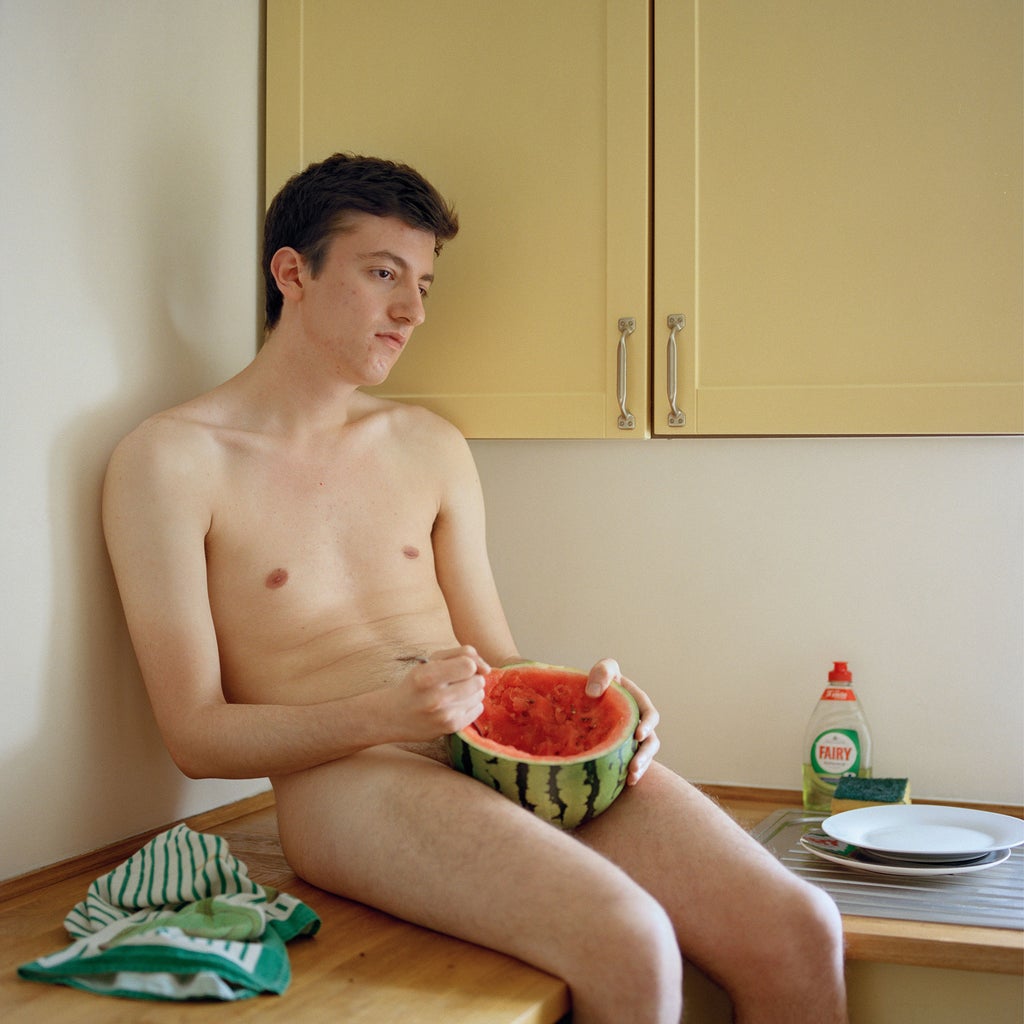
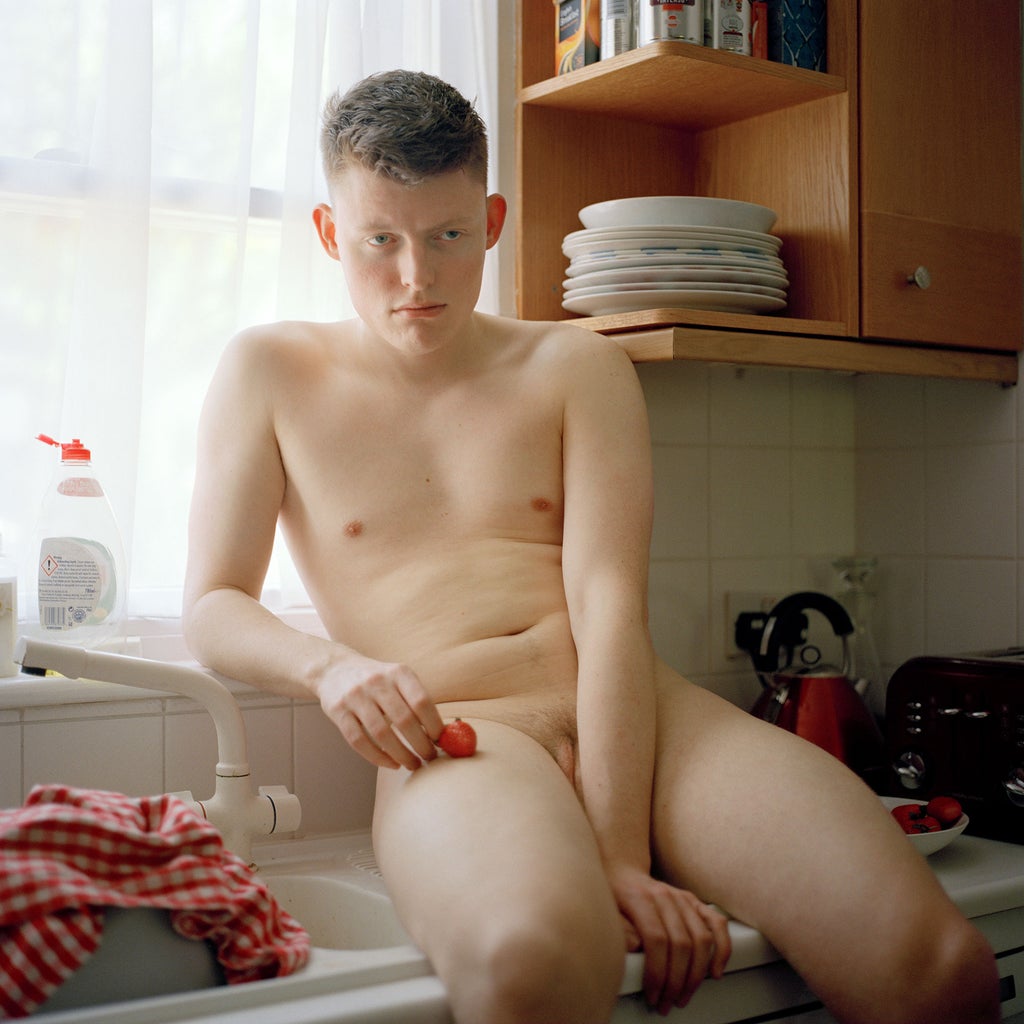
Born in 1991, Li grew up in Guiyang, a mid-size city in southwest China. She is open in discussing why, as a Chinese woman who takes pictures of Western men, it has been important to her to upend the power relations she has experienced in terms of both ethnicity and sex. “Here, I have met men who have a strong preference for Asian women, and it’s made me feel a bit like I’m a panda, you know – an exotic oriental under the curious Western gaze,” she says, “but compared with my experience of the West, there is a lot more cultural sexism and misogyny in China, and I think I was harbouring a lot of anger towards those gender inequalities,” she says. Studying photography has helped her to understand those feelings, and to express her views on the social issues that have shaped her experience of the world in a tongue-in-cheek way.
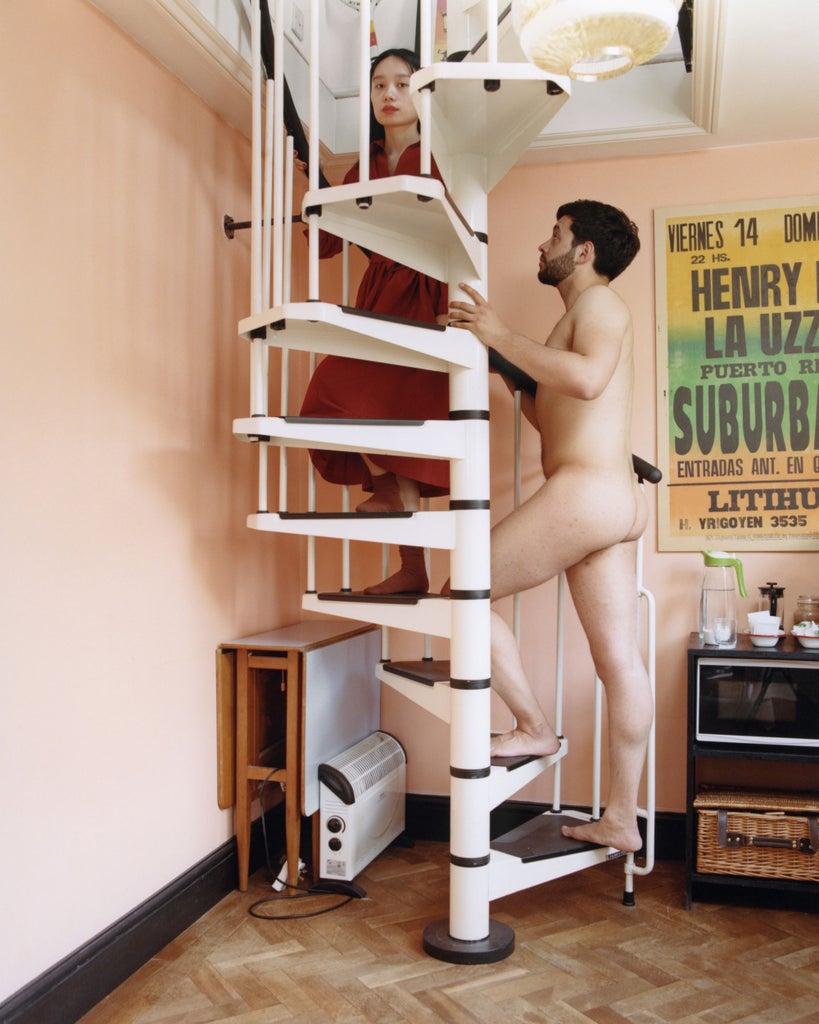
After My Tinder Boys, Li developed her ideas into other projects too. In Paintings, Dreams and Love, she asked men to recreate the scenes of classical paintings with her – them taking on women’s roles. In one of those pictures, Li sips tea in the garden as a nude man waters plants beside her, and in another, she has her hair brushed by a man kneeling next to her on a bed, him naked, legs tucked beneath him, her fully clothed. Perhaps the most striking image from that series is one of her sitting upon the chest of a man as he lies out on a sofa, his arm draping on the floor. Each time, it’s Li that stares directly into the camera, the men almost never do.
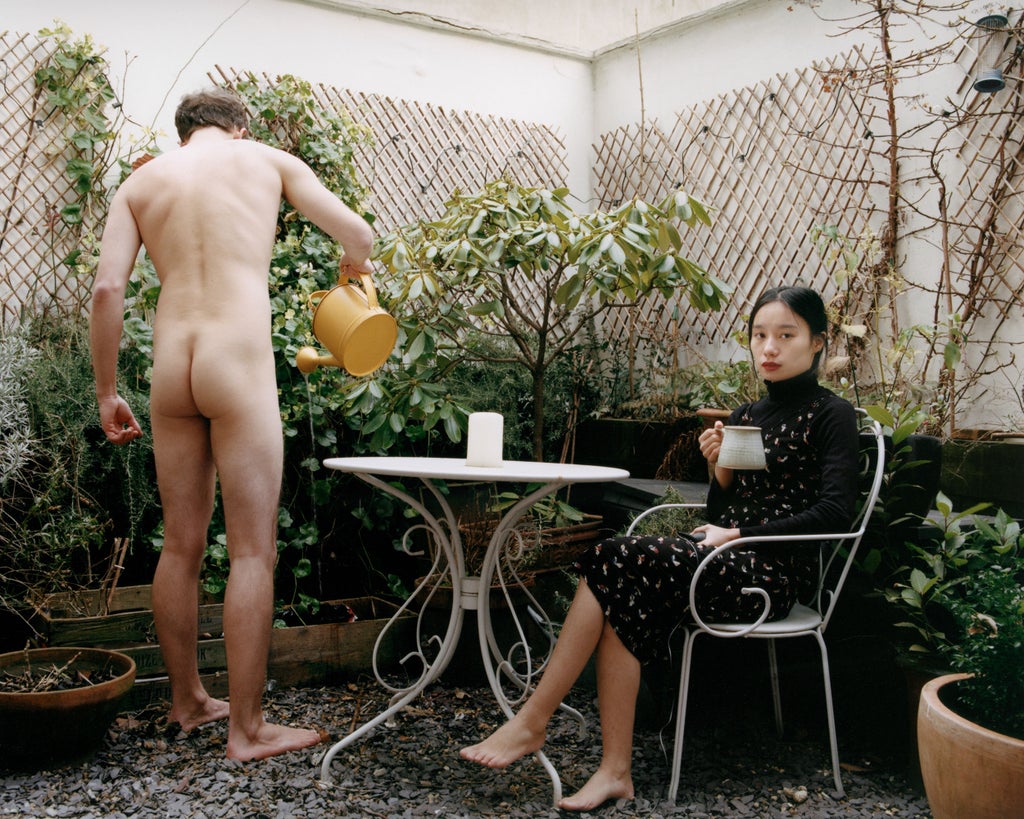
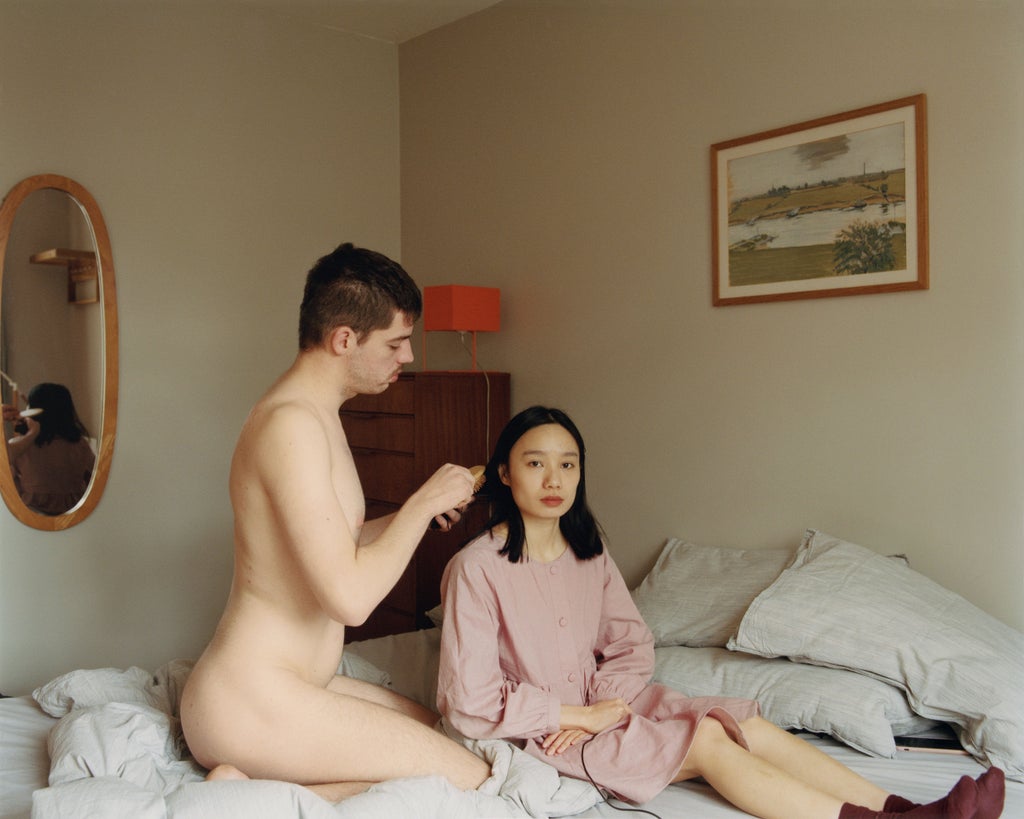
Ultimately, Li wonders if, in the digital age, the gaze is less focused on just women, and more focused on everyone, all of the time. Dating apps have a lot to answer for in that respect, she thinks, but she’s quick to add that she doesn’t believe they’re all bad either. “I think they’re a very efficient and easy way for people to meet each other, especially for people who aren’t very sociable or outgoing. But I guess the problem is that it is too accessible, which sort of flattens everyone and makes things quite boring,” she says. She’s intrigued by the ways in which dating apps are designed to keep people swiping and interacting, and she thinks that’s what needs to change most of all. “I don’t think we can change how people behave, or should change what they want in terms of relationships or connection,” she says, “but if dating apps were designed with a focus on actually meeting people, as opposed to being a game that aims to keep people playing, then they would become less draining and more fulfilling.” As for Li herself, she doesn’t use Tinder anymore, and even if she wanted to, she couldn’t, she laughs, because she’s banned now anyway. Using it for purposes other than the pursuit of romance was never going to last, but it was a fun and thought-provoking experiment while it did.
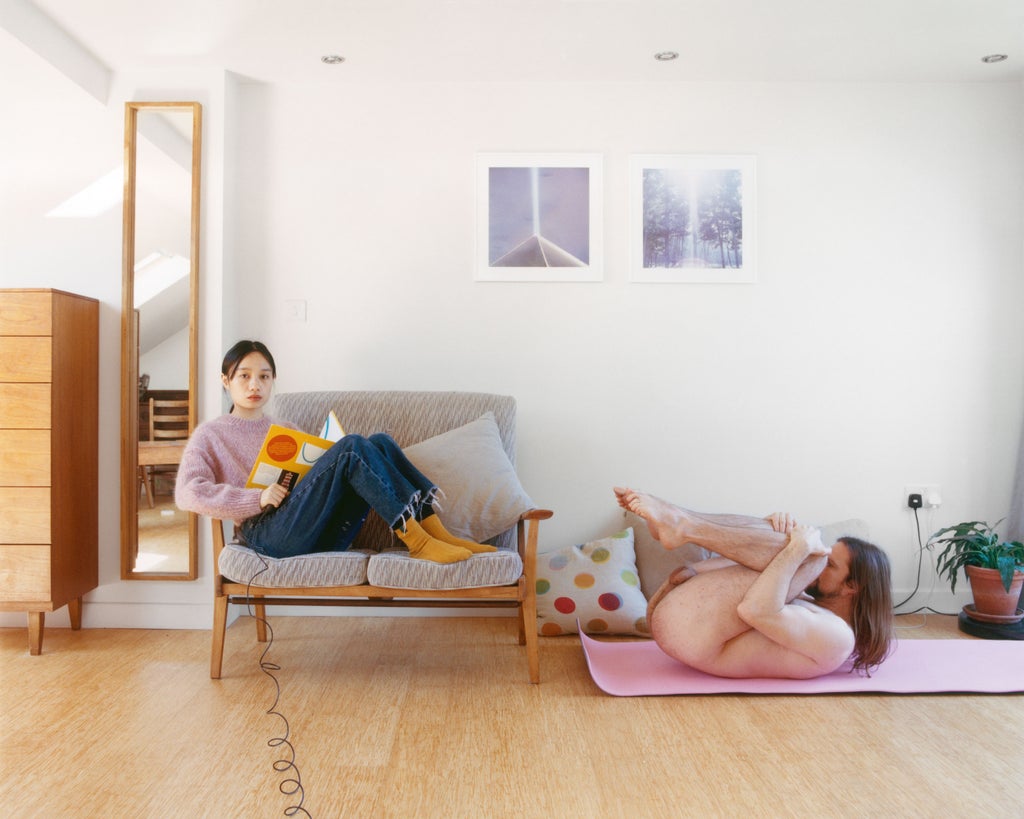
Like what you see? How about some more R29 goodness, right here?
Photos Of Queer Culture In The Deep South (NSFW)